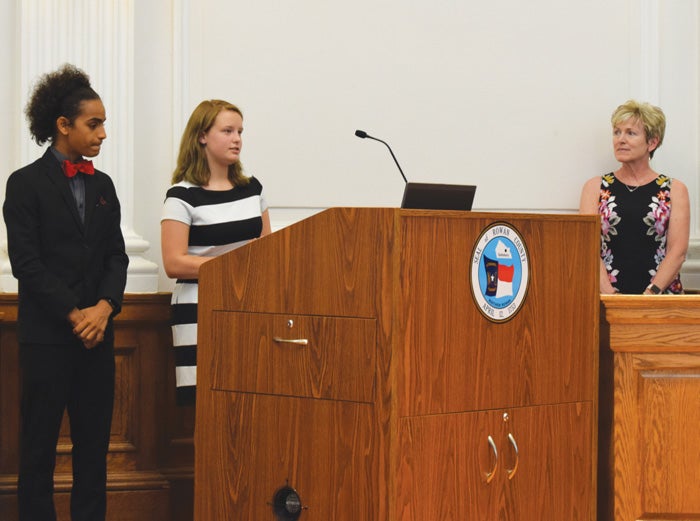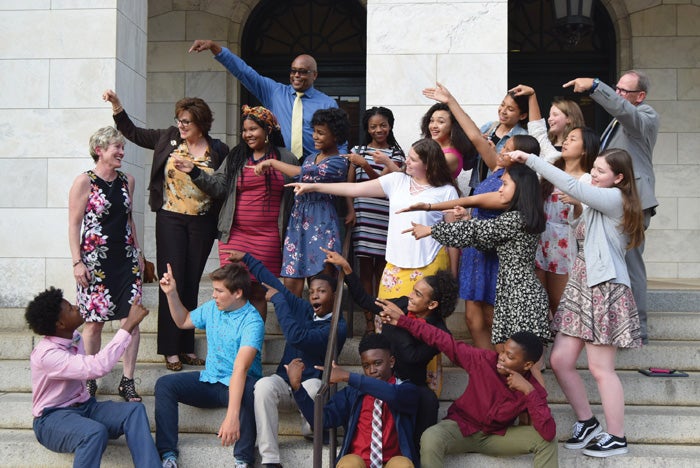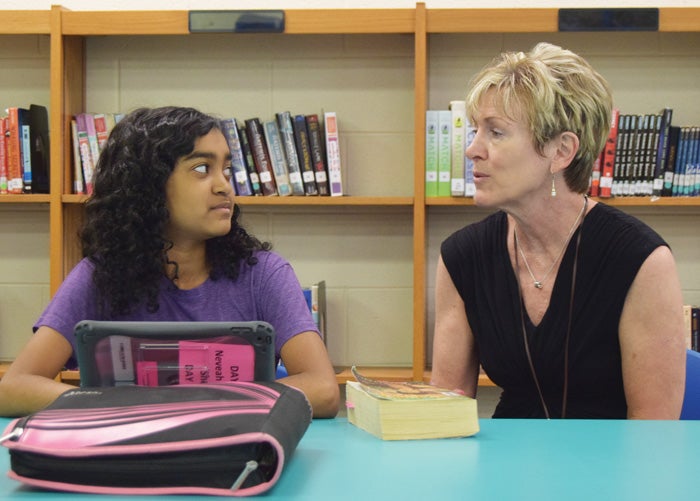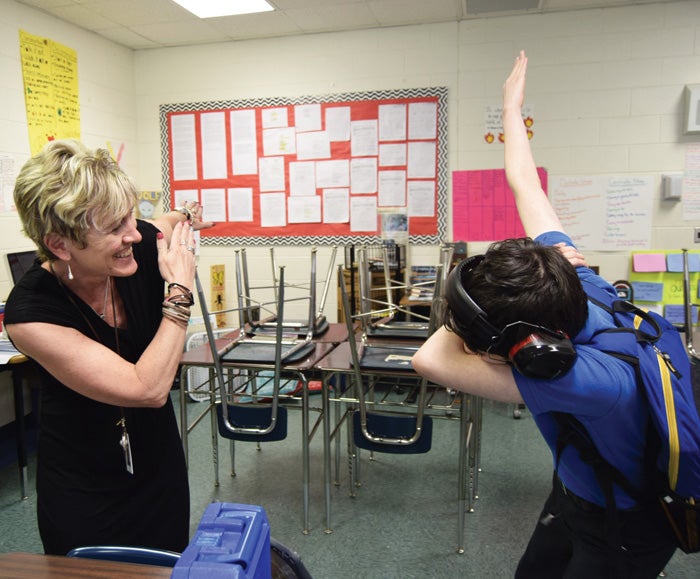The weight they carry: Teachers struggle with limited resources, finances
Published 12:00 am Tuesday, June 5, 2018
SPENCER — The classroom is a riot of color. Every surface is cluttered with projects, artwork, and bits and pieces of nature. The controlled chaos of Angelia Fleming’s classroom contains papier-mâché masks, totem poles, twigs and feathers, posters, paint and stuffed animals.
Like most teachers, Fleming didn’t get her craft materials from the supply closet — she paid for them out of her own pocket. Fleming estimates that she spends roughly $400 at the beginning of each school year stocking her classroom full of supplies.
“I think that’s probably pretty typical,” she said.
It’s not just tissues and hand sanitizer, however. Fleming also makes sure she has extra pencils, paper, notebooks and erasers for low-income students, whose families often can’t afford back-to-school supplies. If she wants her classes to do a special project, procuring supplies can cost more than $100 a pop.
That’s not counting restocking throughout the year.
“You run out of pencils during the school year and poster paper,” she said. “And that doesn’t count anything like books you might think help you improve your teaching or your creativity.”
Fleming isn’t the only teacher who stretches paychecks to cover classroom supplies. While Rowan-Salisbury teachers get stipends from the Rowan County Board of Commissioners or from their local PTA, the money only goes so far.
So teachers dig into their already limited paychecks to make sure that their classrooms are well stocked and that students always have access to pencils and paper.
In recent years, the North Carolina General Assembly has committed to raising teacher pay. Under this vision, teachers who have between 15 and 24 years of experience would earn a base salary of $50,000. But teachers who have 25 or more years of experience would have their salaries capped at $52,000.
When teachers marched to the doors of the legislature May 16, many local teachers said the plan hurts veteran teachers — and, by extension, beginning teachers or those thinking about futures in education.
“They’re not wanting to make a career out of teaching,” said Anna Irving, a teacher at China Grove Elementary School.
A new plan for the 2018-19 budget year proposed by Gov. Roy Cooper pushes the pay scale a little further — with a $50,000 base salary for 15 years of experience. Teachers would receive small raises each consecutive year until they reached a base pay of $52,000 at 24 years of experience. They would continue to receive raises through 30 years of experience, with a salary cap just shy of $55,000.
But for some, the proposals don’t solve the base issue. According to the National Education Association, teachers are actually earning less than they were before the 2009 recession — regardless of dollar sign.
In 2017, the association conducted a survey that ranked North Carolina 39th in the nation for teacher pay with an average salary of $49,940. The previous year, the state ranked 41st. Despite that growth, North Carolina teachers are still experiencing a loss when it comes to actual income.
North Carolina also recently did away with awarding salary increases to teachers who earn a master’s or other graduate degree.
For local teachers, the effect is a slowly tightening noose.
“It is hard to make ends meet,” Fleming said.
While Fleming is lucky enough to have a spouse who brings in plenty of income, she knows that many of her co-workers aren’t so fortunate. If a teacher is single, has children or has a spouse who is also a teacher, the struggle to keep afloat can be brutal.
“It is very hard,” Fleming said.
In recent years, it’s become the norm for teachers to have a second job in the summer. Recently, though, more and more teachers are working second — or even third — jobs throughout the school year.
Even though her family isn’t struggling financially, Fleming is one of them. A few times a week, she puts on sneakers and exercise pants and heads out to work up a sweat. On Thursdays, she teaches exercise classes at Saleeby-Fisher YMCA in Rockwell; on Mondays and Wednesdays, she runs Zumba classes out of a nearby church.
The classes bring in some extra cash Fleming can spend on her classroom and also help solve another problem educators may struggle with: staying healthy.
“It was a little extra money, it was a fun thing to do,” she said of the classes. “And I’ve found that if I’m teaching a class, I’ll exercise.”
For others, the extra jobs are necessary.
School systems, too, are struggling to come up with money. Per-pupil expenditures — the amount of funding districts get per student — vary widely from district to district. In North Carolina, the local government provides more than 30 percent of per-pupil spending, but the bulk — more than 50 percent — comes from the state.
According to the National Education Association, North Carolina has an average of $10,861 in per-pupil expenditures — the national average is roughly $11,000. The top spender is the District of Columbia, which in 2017 spent more than $36,000 per student. Adjusted for inflation, however, schools are actually spending less on students than they were in 2009.
The changes, pressures and low pay are contributing to what Rowan-Salisbury Schools Superintendent Lynn Moody calls a “severe teacher pipeline shortage.”
Faced with low pay, high expectations and negative publicity, fewer and fewer young people are choosing to pursue a career in education.
While teachers, students and parents fight for better conditions and better pay, Moody believes there are small things that can be done to encourage teachers to hang on for just a little longer.
Moody encourages fellow educators to brag about their jobs, to tell the good stories that happen throughout the day, and to find and cling to their passion.
She also encourages students and families to remember to thank their teachers and to let them know they are appreciated. For many educators, an apple or a homemade card might be the only recognition — monetary or otherwise — they’ve received in a long time.
While teachers wait with baited breath for budget plans to roll through and salaries to increase, many acknowledge that, sometimes, there are more rewarding things than a large paycheck.
“It’s one of the most purposeful lives that you could ever live,” Moody said of teaching. “… While they may never make a lot of money, they may make a wonderful life by being a teacher.”
Contact reporter Rebecca Rider at 704-797-4264.









